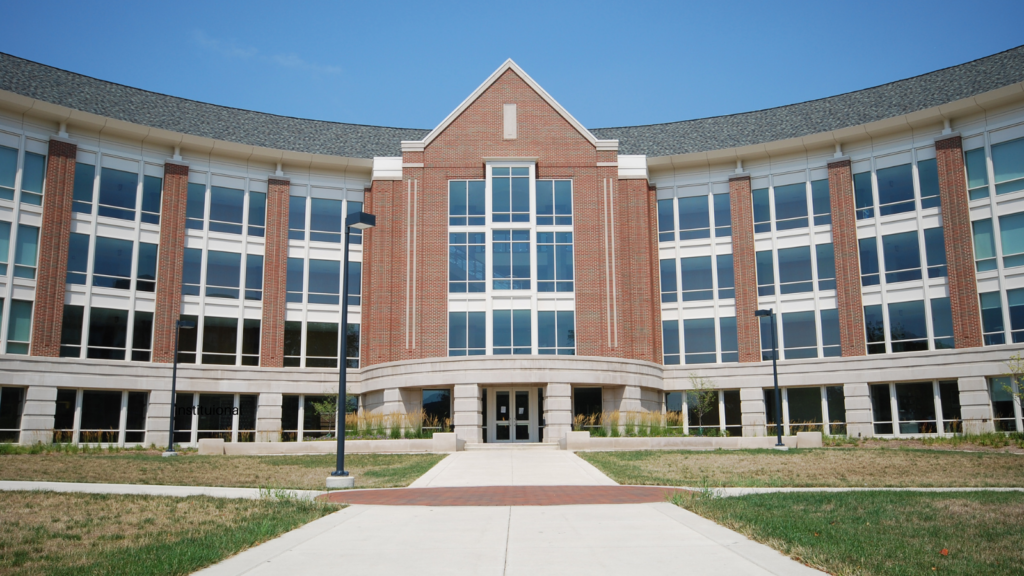How to Start a BridgeUSA Chapter Without Institutional Support
Starting a BridgeUSA chapter should be simple: gather a few friends, host some events, and build a space for honest, open conversation. But on some campuses, our mission to improve political dialogue runs into roadblocks. Administrators who delay approvals, student governments with endless red tape, or outright hostility to political dialogue that doesn’t fit the campus norm, we’ve seen it all. And we’ve developed a road map for our students to persist.
We call them “guerilla chapters”— groups that operate without formal recognition or support from their university. And yet, they thrive. If you’re trying to start a BridgeUSA chapter and the administration is unhelpful or is actively working against you, this guide is for you.
Chapters who are facing barriers to getting started on campus should:
- Start small, but be consistent. Weekly meetups, even in a public space, create routine and momentum.
- Lean on BridgeUSA’s national team. We provide funding, event templates, marketing resources, and strategic support.
- Go digital. Use social media, GroupMe, and Discord to recruit members.
- Find allies. Professors, local coffee shops, and off-campus spaces can all be unexpected sources of support.
- Be patient—but persistent. The system may not support you right away. That doesn’t mean your work doesn’t matter.
Each of these lessons come from existing BridgeUSA chapters that have faced hurdles getting started on campus. Today, these are now some of our most successful chapters and student leaders!
This spring, we launched a new chapter at Lafayette University. Led by President Beaux Lizewski and his team, it has become a textbook case of how to run a successful guerilla chapter. Without recognition from the student government, they have built a strong, engaged group of students from the ground up.
“Despite not being a registered student organization, we were able to build community and engagement thanks to two things: a strong executive board and support from the national organization,” Beaux said. “Our team consists of people who are eager to make BridgeLafayette the best chapter it can possibly be.”
With weekly executive meetings, constant communication via iMessage, and a hands-on leadership team, the chapter didn’t just survive, it thrived. The lack of official status gave them some unexpected freedoms. “We were free to mold and shape the chapter in the way we saw fit, outside the influence of Student Government,” Beaux told us. But that independence came with drawbacks. “Student Government, noticing our presence on campus, told us that we cannot put up flyers and such under the name BridgeLafayette, which restricted our freedom in a big way.”
Even so, they kept going. They posted on Instagram, used GroupMe and Discord channels, spoke in classrooms with professors’ permission, and even ran a $150 JBL speaker giveaway to attract new attendees. When asked what advice he’d give to others in a similar position, Beaux emphasized systems and structure.
“I would advise other chapters who are in a similar situation to develop a system early on and then stick to it. We created template presentations for our events and chose a consistent meeting time. That way, we didn’t waste time reinventing the wheel and could focus on the important stuff.”
Looking ahead, the chapter has ambitious goals: larger events, higher attendance, and new formats to explore. Because they’re building something meaningful, whether they get recognition for it or not.
A similar story unfolded last year at Boston University. Our chapter waited over six months to receive approval as a registered student organization. In the meantime, they couldn’t reserve rooms, make purchases, or advertise on school property.
But they didn’t wait around. They met in public areas like the student union and coffee shops, and relied on direct funding and resources from the national team. To solve for inability to table or put posters up, they focused heavily on building an online presence. They used Instagram, TikTok, and Twitter for outreach and visibility. They ended up creating a digital community that was just as powerful as a physical one and laid the groundwork for a strong chapter even before getting the university’s stamp of approval.
Sometimes, the issue isn’t bureaucracy, but blatant political bias. Early in BridgeUSA’s history, when students at Brigham Young University attempted to start a BridgeUSA chapter, the students and the national team quickly learned the limits of institutional tolerance. The university’s conservative administration wouldn’t allow them to meet on campus at all. They didn’t give up. Rather, they got creative. The chapter found other places to gather. The group ended up rotating between the chapter president’s apartment, study rooms at public libraries, and coffee shops. Without access to official meeting spaces, they built community through consistency and a clear purpose. Their persistence paid off and they became a strong chapter throughout the 2022/23 school year.
Moral of the story? If your university won’t recognize you, don’t wait. You don’t need their permission to build community and create dialogue (the most important part of our work).
If you’re ready to start a chapter, and might have to jump through some hoops to get there, we’re here to help. Join us to make a difference in our country’s political dialogue. www.bridgeusa.org/start-a-chapter/

